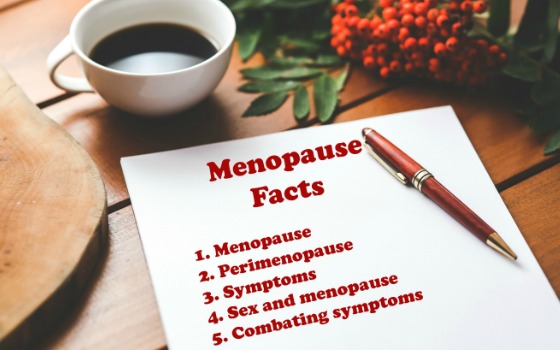I’d like to talk about midlife crisis. But first, a little history lesson.
The Evolution of “Midlife Crisis”
In 1965, two years after I came screeching into the world, Elliott Jacques, a Canadian psychoanalyst and social scientist, coined a curious little phrase. This phrase was meant to encapsulate that pivotal time in our lives when we mull over our own mortality and the remaining years of productive life we have left. That phrase was midlife crisis.
The phrase surfaced in an article, “Death and the Midlife Crisis,” that Jacques wrote for the International Journal of Psychoanalysis. However, that wasn’t, the first time he had used that phrase.
In 1957, when he was 40 years old, Jacques stood before an audience of 100 individuals at the British Psycho-Analytical Society. As he looked out on his audience, a room full of the leading psychoanalysts of their time, he was nervous. He was about to read from his own paper, “The Mid Life Crisis,” on the thinly veiled theme of encroaching death and how it effects people, typically those in their mid-30s.
He spoke of a 36-year old male patient who described to his therapist having feelings of having reached the “crest of the hill” and that life from there on out was on a downward slope leading, eventually to death. Think about that. A 36-year old man lamenting his life, feeling as if the best of it had passed him by.
While that may seem like an extreme case of self-actualization, it’s interesting to note that around that time, in 1957, the life expectancy for men was around 66 years old and 72 for women, so at that time, 36 would have been the mid-point of life for that gentleman.
It wasn’t until years later that Jacques revealed that the 36-year old man he was referring to was actually himself. And while he wasn’t the first to come to the realization that there was this contemplative time in people’s lives, he forever changed the course of societal norms.
Then Along Came Gail…
The term midlife crisis could have faded into obscurity but for a woman named Gail Sheehy. About a dozen years after Jacque’s article was published, Sheehy, an author and journalist, popularized the phrase in her landmark book “Passages: Predictable Crises of Adult Life.”
In the book, Sheehy talks about how men and women continue growing into adulthood from age 18 to 50. She asserts that there are predictable crises at each step, and that the steps are the same for both men and women, however, the developmental rhythms are not. Only when we begin to understand this can we use each crisis to stretch to our full potential instead of blaming ourselves. And, according to Sheehy, the peak years of anxiety for practically everyone are ages 37 to 42.
“Passages” was a landmark bestseller and, since its release, we (as in ‘society’ as a whole) have it firmly established in our minds that crisis is a predictable part of midlife. The phrase itself, midlife crisis, is catchy. It has become a cultural and societal construct that drives our narrative. In some ways, it dictates where our life is supposed to be headed.
Fundamentally, I don’t have a problem with that. We all go through the transition in our adult lives. We reach a certain stage and the natural order of things is to look back on our lives. We re-examine who we are, we give thought to what we want to do with our lives and we try to figure out who we want to be ‘when we grow up.’ This is the genesis of reinvention.
Is it Really a Midlife Crisis?
 According to a study conducted back in 1995 called “Midlife in the United States” (“MIDUS”), only 10-20 percent of Americans have experiences that actually qualify as a midlife crisis.
According to a study conducted back in 1995 called “Midlife in the United States” (“MIDUS”), only 10-20 percent of Americans have experiences that actually qualify as a midlife crisis.
Margie Lachman, a Professor of Psychology at Brandeis University, is a member of the original MIDUS team. She believes that people of midlife age have busy social lives, are typically healthy, and are at their peak in terms of career earnings. “Most people don’t have a crisis, . . . people are pretty satisfied.”
To me . . . and maybe I’m in the minority here . . . but to me, while it may only be six letters, crisis is a big scary word.
Merriam-Websters defines crisis in a number of ways, including,
- a paroxysmal attack of pain, distress, or disordered function,
- an unstable or crucial time or state of affairs in which a decisive change is impending, and
- a situation that has reached a critical phase.
But here’s my favorite definition:
“an emotionally significant event or radical change of status in a person’s life; a midlife crisis”
I’ll come back to that gem in a minute, but first I want to give you a few words that are synonymous with crisis: disaster, mess, emergency, calamity, catastrophe.
How does that sit with you? How do those words make you feel? They’re unsettling to me. To know that this time in our lives – this point of newfound freedom and excitement, this stage where we get a do-over of our lives – is associated with words that conjure up death, destruction, hardship, misery and suffering.
Maybe I’m painting this with dismal brushstrokes. Perhaps some of you feel that that’s the hallmark of your life at this point. It explains the pain that you feel, the cataclysmic nature of what’s going on in your life, the confusion about who you are, or maybe even the disappointment in who you’ve become.
For that, I will say this: you are NOT alone. But here’s the thing? Does all of that necessarily have to equate to a crisis?
When I was in my mid-20s, I wanted to shake things up in my life. I was living in Maryland at the time, and aside from a trip to Germany a few years before that and almost getting married when I knew it wasn’t the right move for me at the time, Maryland was my life and that was all that I knew.
But internally, I wasn’t settled. I wasn’t satisfied. I didn’t feel like I was where I needed to be. I wanted to be THAT woman…the one to leave home, do great things in life, see the world. I just wasn’t fulfilled in Maryland. It felt as if something was missing from my life, like I wasn’t whole. I wasn’t terribly unhappy, but I wasn’t cheesy grin happy, either. So, I uprooted myself from everything and everyone that I knew – family, friends, a stable job – I rented a U-Haul and hightailed it to Atlanta to begin my exciting new life.
Does what I just described sound like reinvention to you?
Back then, no one said I was going through some sort of crisis. I was simply switching gears. I wasn’t in crisis, but everything that I felt back then, and the subsequent move I made that changed the trajectory of my life, paralleled what many midlife women go through.
You want something new. You want something different. You want to rediscover the woman that you are.
I want to go back the definition of crisis as told by Merriam-Webster. To refresh your memory, I’ll repeat it for you.
“an emotionally significant event or radical change of status in a person’s life; a midlife crisis”
Did you catch it? Right there at the end, they used the word “midlife” as an example of crisis! I mean, come on, it’s right there in the definition! Like so many others, Merriam-Webster can’t seem to separate the word ‘midlife’ from ‘crisis.’
I’d like you to do something for me; it won’t take long at all.
- Go to Google, Bing or whatever your favorite search engine is
- Type in the word “midlife” and notice what kind of search results you get back.
Go ahead, I’ll wait.
Are you seeing what I’m seeing? Even search engines can’t separate “midlife” from “crisis” – just as so many other people have who’ve been conditioned to believe that—like Raggedy Ann and Andy, The Captain and Tennille, love and marriage—you can’t have one without the other. I get that life can be difficult and trying for us when we reach this stage, but change is a part of life. Think about it: Turmoil, upheaval, change, pain — this can all happen at any stage of life.
I’ll leave you with that realization — the inability to separate ‘midlife’ from ‘crisis.’
For more on “Midlife Without the Crisis,” read Part 2 here.





I for One so Believe this that You are saying….Looking so forward to Part 2….Keep up the Great Work & Thank YOU so much….
Thanks Deb; I’m glad you enjoyed Part 1; be on the lookout for Part 2 later this week. Have a great week.